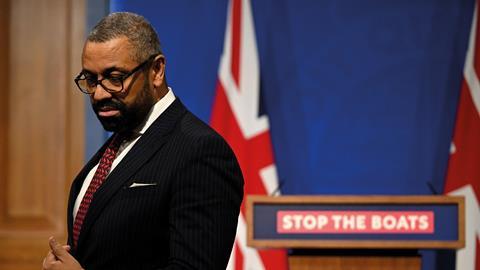On 25 April, the Safety of Rwanda (Asylum and Immigration) Act 2024 received royal assent and passed into law. This is the latest development relating to the government’s policy to stop small boat crossings via the implementation of a Rwanda asylum seeker removals scheme. After rounds of parliamentary ping-pong between the Commons and Lords, the government was able to push through the legislation. The final version of the act does not include any of the amendments passed by the Lords, such as a carve-out exemption to prevent removal to Rwanda of people who served with or for the British Armed Forces, such as Afghan translators.


In direct response to the prior Supreme Court decision declaring the Rwanda plan unlawful, the act requires Home Office asylum decision-makers to consider the Republic of Rwanda as a ‘safe’ country for the removal of migrants, prohibit UK courts from considering the potential risks of Rwanda transferring individuals to other nations and disregard the equity and efficacy of asylum processes within Rwanda. The legislation also disapplies the relevant sections of the Human Rights Act 1998 and confirms that only a minister can decide whether the government will comply with a European Court of Human Rights (ECtHR) interim measure, also known as a Rule 39 injunction (a type of injunction issued by the court in ‘exceptional circumstances’, where there is an ‘imminent risk of irreparable harm’).
In a Home Office press release, home secretary James Cleverly (pictured above) stated: ‘The bill makes it unambiguously clear that UK parliament is sovereign, and the validity of any act of parliament is unaffected by international law. Ministers will be able to retain the decision on whether to comply with interim measures from the European Court of Human Rights, for example, a Rule 39 injunction.’
The Rwanda scheme was initially introduced during the premiership of Boris Johnson through the Migration and Economic Development Partnership between the UK and the Republic of Rwanda in April 2022. This partnership, bolstered by payments from the British government to the Rwandan government of £240m as of December 2023, allows for relocation to Rwanda of people who entered the UK without advance immigration permission to claim asylum. A further £50m is expected to be paid to the Rwandan government during the 2024/25 fiscal year.
The UK government hopes that the scheme will act as a deterrent to people crossing the English Channel to claim asylum in the UK. Human rights organisations, both domestically and abroad, including the UN, have called on the government to halt the Rwanda scheme due to the risk of human rights violations and to focus political efforts on improving the current asylum claim processing system.
Prime minister Rishi Sunak has indicated that the government is willing, if necessary, to invoke the nuclear option of withdrawing from the European Convention on Human Rights (ECHR) to ensure the execution of the Rwanda plan. The ECtHR successfully issued interim measures preventing the last-minute take-off of the first and only removal flight to Rwanda in June 2022. The government is keen to avoid such actions again nearly two years later.
However, there is no government consensus on leaving the ECHR, with cabinet members such as Lord Cameron insisting that this radical step is unnecessary to reduce small boat crossings. Additionally, regardless of the legal complexities of leaving an international human rights treaty, exiting the convention would present the government with constitutional obstacles in Northern Ireland. The ECHR is a fundamental component of the Good Friday Agreement (which marked an end to the Troubles in Northern Ireland in 1998).
Alongside passing the act into law, the Rwanda Treaty has now been ratified. This treaty was laid before parliament last December in response to the Supreme Court judgment, which declared the government’s Rwanda policy unlawful. As per the principle of parliamentary supremacy, the combination of the act and treaty is intended to allow the government to implement its plan to remove asylum seekers to Rwanda, where the Rwandan government will process their claims and, if successful, offer humanitarian protection in Rwanda.
What’s next? The government has chartered aeroplanes, laid and passed legislation, and put plans in motion for removals to Rwanda within the next 10-12 weeks, but there will undoubtedly be further legal and administrative challenges before flights take off. Michael Tomlinson, the minister for illegal migration, has insisted that the government is ready and prepared for legal challenges and is determined to see the first one-way flights to Rwanda take off.
In the meantime, the fast-approaching summer months mark the highest number of small boat crossings on the English Channel throughout the year. Ahead of the general election, government ministers are determined to see flights to Rwanda take off. Whether the passage of the Safety of Rwanda Act proves to be a deterrent against irregular arrivals remains to be seen. As the government has yet to introduce promised new ‘safe and legal routes’, migrants’ rights advocates and critics alike are concerned about the human costs of these journeys – a stark reminder of the genuine consequences of a seemingly intractable issue.
Wilfrid Boon is a solicitor and Phoebe Warren a trainee solicitor at Laura Devine Immigration in London
































No comments yet